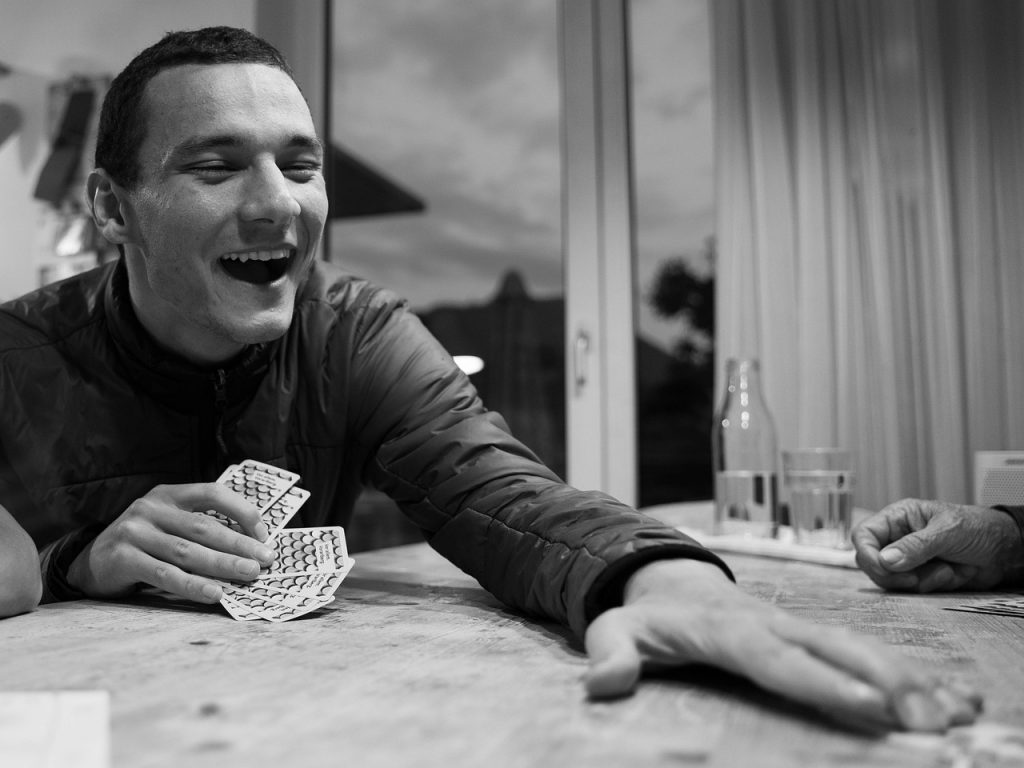
Gambling, an activity rooted in chance and risk, has captivated individuals across cultures and time periods. Beyond the lure of potential winnings, the psychology behind why people enjoy gambling is complex and multifaceted. In this article, we explore the psychological drivers that contribute to the enjoyment of gambling, shedding light on the intricate interplay of emotions and cognitive processes.
1. Thrill-Seeking and Sensation-Seeking:
a. Dopamine Release: Engaging in gambling activities triggers the release of dopamine, a neurotransmitter associated with pleasure and reward. The anticipation of a win and the thrill of uncertainty create an exhilarating experience, contributing to the enjoyment of the activity.
b. Sensation-Seeking Traits: Many individuals who enjoy gambling possess sensation-seeking traits. These individuals actively seek novel and stimulating experiences, finding the unpredictability and excitement of gambling particularly appealing.
2. Escape and Entertainment:
a. Escapism from Reality: Gambling provides a temporary escape from everyday concerns and stresses. The immersive and absorbing nature of the activity allows individuals to momentarily shift their focus, seeking entertainment and diversion from daily challenges.
b. Entertainment Value: Beyond the potential financial gains, the sheer entertainment value of gambling, whether at a casino or through online platforms, plays a significant role in attracting and retaining participants.
3. Cognitive Biases and Illusions:
a. Illusion of Control: Some individuals harbor the illusion of control when gambling, believing that their decisions or strategies can influence the outcome. This cognitive bias enhances the perceived enjoyment, as individuals feel a sense of agency over the uncertain results.
b. Gambler’s Fallacy: The gambler’s fallacy, where individuals believe that past outcomes influence future results, contributes to the psychological allure of gambling. This fallacy fuels the belief that a winning streak or a series of losses can impact subsequent outcomes.
4. Social Interaction and Connection:
a. Social Nature of Gambling: Whether at a poker table or participating in online gaming communities, gambling often involves social interaction. The camaraderie among players, shared experiences, and the opportunity to connect with others who share similar interests enhance the overall enjoyment.
b. Sense of Community: The sense of belonging to a community or group of fellow gamblers fosters a social dimension to the activity. This shared experience can amplify the pleasure derived from gambling.
5. Variable Reinforcement Schedules:
a. Intermittent Rewards: The use of variable reinforcement schedules, where rewards are unpredictable and intermittent, is a powerful psychological factor in gambling enjoyment. This approach fosters a sense of excitement, as individuals anticipate the possibility of a reward with each bet.
b. Operant Conditioning: The principles of operant conditioning, where behaviors are reinforced through rewards, contribute to the repetition and enjoyment of gambling. The intermittent nature of rewards reinforces the behavior, creating a cycle of engagement.
6. Cognitive Dissonance and Rationalization:
a. Cognitive Dissonance Reduction: Individuals may experience cognitive dissonance when faced with the contradiction between the risks of gambling and the desire for enjoyment. To reduce this discomfort, individuals may rationalize their participation, emphasizing the potential rewards and downplaying the risks.
b. Positive Framing: Participants often frame their gambling experiences in a positive light, focusing on wins while minimizing losses. This positive framing enhances the perceived enjoyment and contributes to continued engagement.
7. Sense of Achievement and Mastery:
a. Skill-Based Games: In skill-based games such as poker or blackjack, individuals may derive enjoyment from the sense of achievement and mastery. Successfully applying strategies and skills to influence outcomes enhances the feeling of competence and accomplishment.
b. Competitive Edge: The competitive nature of certain gambling activities appeals to individuals with a competitive streak. The pursuit of outsmarting opponents or the house can contribute to the psychological enjoyment of the challenge.
Conclusion:
The psychological allure of gambling is deeply rooted in the intricate interplay of various factors, ranging from the thrill of uncertainty to the social dimensions of the activity. Understanding the psychological drivers that contribute to the enjoyment of gambling provides insights into the complex motivations that draw individuals to this form of entertainment. As researchers and psychologists delve deeper into these dynamics, the ongoing exploration of the psychological facets of gambling promises to unveil even more layers of the intricate relationship between individuals and the captivating world of chance and risk.